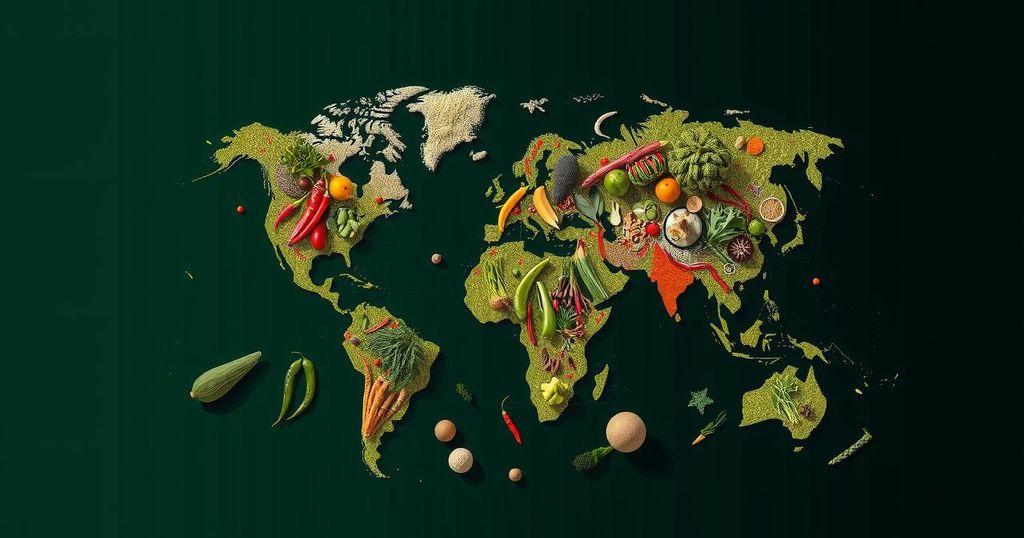Addressing Food Security Risks Amid Climate Change and Geopolitical Divisions
A new report from the Stockholm Environment Institute and Mistra Geopolitics identifies climate change and geopolitical divisions as significant threats to global food security. Proposed solutions include enhancing domestic food production, promoting resilient agricultural practices, reducing food waste, and fostering international collaboration among nations. The findings highlight an alarming increase in global hunger and emphasize the necessity for urgent policy responses to ensure food resilience.
In a recent report by the Stockholm Environment Institute (SEI) and Mistra Geopolitics, it is emphasized that climate change, geopolitical conflicts, and economic divisions significantly threaten global food security. The report, presented during the Food, Agriculture and Water Day at COP29, identifies that climate impacts, such as extreme weather, disrupt food production and trade. Increasing geopolitical tensions, including the ongoing conflicts affecting food supply chains worldwide, further exacerbate these crises, highlighting the interconnectivity of various nations’ food security. The report details the detrimental effects of climate change on agriculture, resulting in potential global food price shocks and reduced accessibility for populations. The report also underscores that more than 100 million individuals faced increased hunger in 2022 compared to 2019, with projections indicating that 582 million people may be chronically undernourished by 2030 if current trends continue. Given these challenges, the authors propose solutions that include enhancing local food production capabilities, promoting climate-resilient agricultural practices, and fostering collaboration among nations. By decreasing food waste and shifting towards plant-based diets, countries can increase food availability and efficiently address food security. Furthermore, it advocates for adaptable policy responses and a multifaceted approach to strengthen the resilience of food systems amidst these evolving challenges, urging nations to form small alliances to tackle common risks. Lead author, Sara Talebian, highlights the need for collective action: “Collaboration among small groups of countries with common goals or shared risks emerges as a potential solution to manage climate risks to food security under increasing geopolitical tensions.”
The report by the Stockholm Environment Institute and Mistra Geopolitics reveals critical insights regarding the risks posed to food security by climate change and geopolitical instability. It underscores the necessity for countries to adapt and adopt resilient agricultural practices to mitigate these risks. Furthermore, it explores the interconnectedness of global food systems, emphasizing how disruptions in one region can have cascading effects worldwide. This situation is exacerbated by a significant increase in global hunger, necessitating urgent policy responses and adaptive strategies to secure food for future generations.
In conclusion, the report by SEI and Mistra Geopolitics articulates the pressing threats to global food security posed by climate change and geopolitical tensions. It asserts that a combination of enhanced local food production, international collaboration, and reduced food waste offers viable pathways to mitigate these risks. The authors advocate for a coherent, multifaceted approach to strengthen food systems globally, emphasizing the urgency for adaptable policies and strategic alliances to ensure food resilience in the face of ongoing challenges.
Original Source: news.cision.com




Post Comment